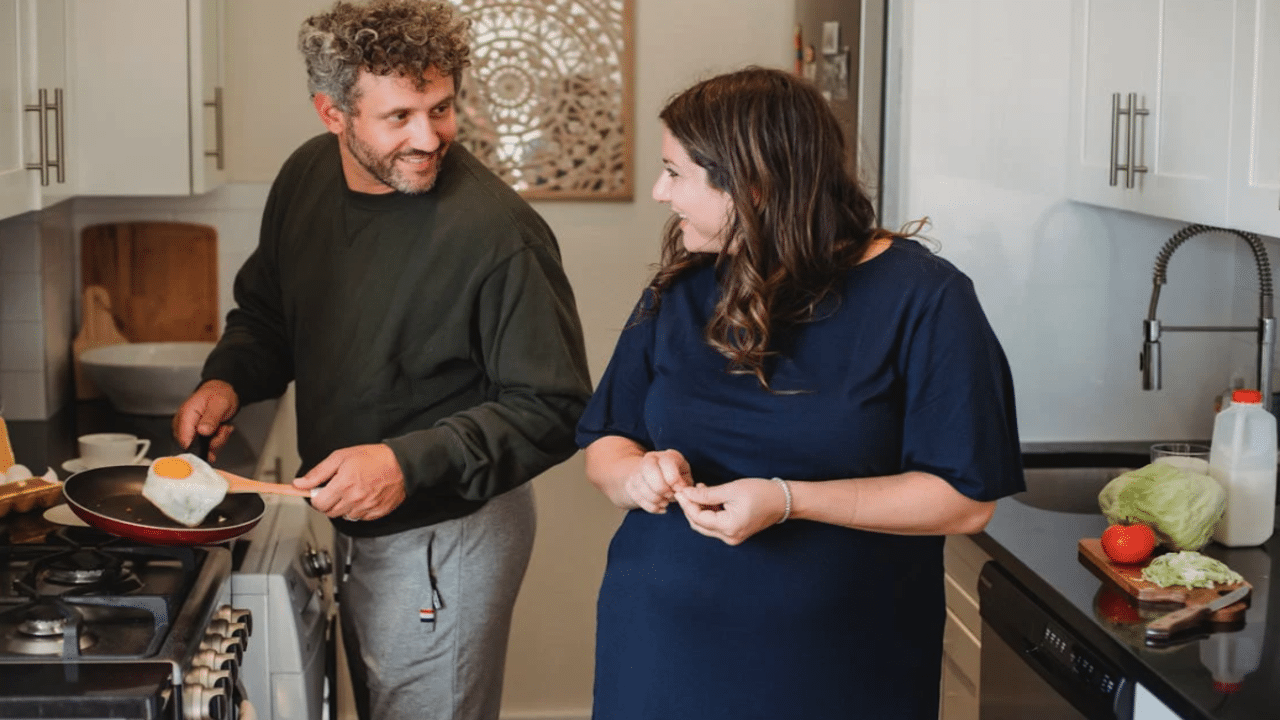
Building a secure attachment in marriage doesn’t happen through grand gestures–it’s the little, consistent actions that make your partner feel seen, safe, and loved. A secure marriage isn’t one without conflict; it’s one where both people know they can turn toward each other rather than away. These everyday habits may seem simple, but over time, they create the emotional glue that keeps couples close and resilient through anything.
Respond When Your Partner Reaches Out

Secure attachment thrives on responsiveness. When your partner says something as small as “look at that sunset,” it’s not just small talk–it’s a “bid” for connection. Turning toward these moments instead of brushing them off builds emotional trust. Even a short “yeah, that’s beautiful” tells your partner they matter to you. Miss too many of these moments, and emotional distance grows before either of you realize it.
Keep Your Promises–Especially the Small Ones

Reliability is one of the deepest roots of security. When you say you’ll call, text, or pick something up–and actually follow through–it sends a message: “You can count on me.” Over time, these small promises reinforce trust far more than big declarations. Secure couples don’t just love each other; they depend on each other’s word.
Make Eye Contact During Conversations

Eye contact is underrated. It’s one of the fastest ways to signal safety, attention, and emotional presence. When you put down your phone, look at your partner, and really see them, you’re saying, “You matter right now.” It might sound minor, but this habit reaffirms intimacy and tells your partner they’re your priority in that moment.
Offer Reassurance During Stress

A secure partner doesn’t need to fix everything–they just need to be there. When your spouse is overwhelmed, a calm “I’ve got you” or a hug that lasts a few seconds longer can regulate their nervous system. Couples who offer this kind of emotional grounding build stronger bonds because they become each other’s safe base in hard times.
Practice Gentle Start-Ups During Conflict

According to the Gottman Institute, the way a conversation starts predicts how it’ll end. Instead of saying, “You never help around here,” try, “I’ve been feeling overwhelmed and could use some help.” Gentle start-ups prevent defensiveness and make room for empathy. It’s one of the simplest ways to keep arguments from damaging connection.
Share Gratitude Daily

Gratitude is emotional maintenance. Saying “thanks for making dinner” or “I appreciate how hard you work” shifts focus from what’s lacking to what’s working. Research shows that couples who express appreciation regularly are more satisfied and resilient. It’s not about flattery–it’s about acknowledging effort and keeping positivity flowing between you.
Make Physical Affection a Habit

Secure attachment isn’t just emotional–it’s physical, too. Holding hands while walking, hugging before bed, or giving a kiss goodbye communicates comfort and safety. Physical touch releases oxytocin, the bonding hormone, which lowers stress and deepens connection. The goal isn’t perfection–it’s a consistent, warm touch that says “I’m here.”
Check In Emotionally (Not Just Logistically)

Many couples discuss chores and schedules but rarely talk about how they feel. Asking “How are you holding up?” or “Is anything stressing you lately?” keeps emotional intimacy alive. These small check-ins prevent disconnection and help you notice each other’s inner worlds–a cornerstone of attachment security.
Repair Quickly After Disagreements

Every couple fights, but what separates the healthy ones is how quickly they repair. A simple “I didn’t mean to hurt you” or “Can we start over?” can reset emotional safety. Secure marriages aren’t built on the absence of conflict but on the confidence that no disagreement can permanently break the bond.
Celebrate Each Other’s Wins

When something good happens, your reaction matters. Secure couples amplify each other’s joy rather than dim it. Saying, “I’m so proud of you” or planning a small celebration builds a sense of shared happiness. These moments teach your partner that their success is your success too, strengthening the “team” mentality in marriage.
Maintain Shared Rituals

Whether it’s morning coffee together, a Sunday walk, or a weekly show you watch side by side–rituals are anchors of stability. They create predictability, which helps both partners feel emotionally grounded. Even in chaotic times, these routines remind you: no matter what changes, we stay consistent.
Be Curious About Each Other’s Worlds

Long-term couples sometimes assume they already “know” each other–but people evolve. Ask open questions like “What’s been on your mind lately?” or “Is there something you’re excited about right now?” Staying curious keeps emotional intimacy fresh. Secure attachment grows when both partners feel continually known and understood.
Apologize Without Defensiveness

A sincere apology restores safety faster than anything else. Instead of saying, “I’m sorry, but–,” try “I’m sorry, that was hurtful.” Accountability builds trust; defensiveness erodes it. A partner who can admit mistakes and repair with humility makes the relationship feel emotionally stable and safe.
Speak Your Needs Clearly

Security doesn’t mean mind-reading. Many couples spiral because one person expects the other to “just know.” Instead, use direct language: “I need some time to rest,” or “I’d love a little reassurance.” Expressing needs clearly prevents resentment and teaches both partners that communication–not guessing–keeps love secure.
Protect Each Other’s Privacy and Dignity

Trust grows when partners feel safe even when they’re not around. Avoid venting your spouse’s private issues to friends or mocking them in public. These moments can quietly corrode safety. Secure couples protect each other’s dignity as if it were their own, reinforcing mutual respect.
Create Safety for Vulnerability

If your partner shares something raw–like an insecurity or past pain–respond gently, not critically. Secure attachment deepens when vulnerability is met with empathy instead of judgment. It teaches your partner that they can show up fully, flaws and all, and still be loved.
Say “I Love You” in Actions, Not Just Words

Love is best expressed in everyday gestures–brewing coffee for them, checking they got home safe, or remembering what they said last week. These micro-actions make your partner feel loved, not just hear it. Words matter, but consistent care is what turns affection into lasting emotional security.






Ask Me Anything